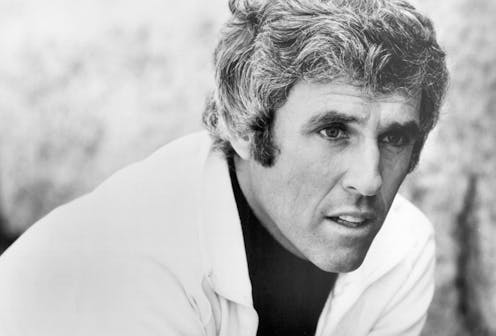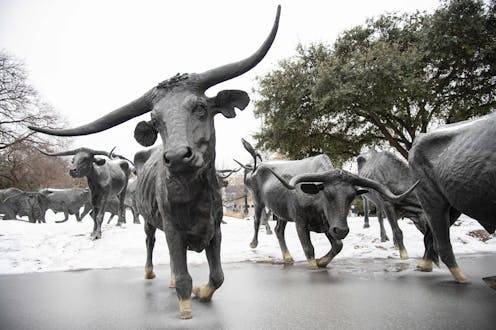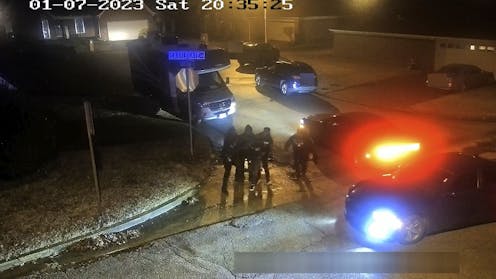A new strategy for western states to adapt to long-term drought: Customized water pricing
- Written by Matthew E. Kahn, Provost Professor of Economics and Spatial Sciences, USC Dornsife College of Letters, Arts and Sciences
 Prompts like this sign in Coalinga, California, may get people to use less water – but paying them could be more effective. Matt McClain/The Washington Post via Getty Images
Prompts like this sign in Coalinga, California, may get people to use less water – but paying them could be more effective. Matt McClain/The Washington Post via Getty ImagesEven after heavy snow and rainfall in January, western states still face an ongoing drought risk that is likely to grow worse thanks to climate change. A whopping...
Read more: A new strategy for western states to adapt to long-term drought: Customized water pricing










